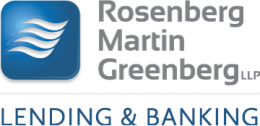New Legislation Proposed to Lower Threshold for Projects to Qualify for Baltimore City’s High-Performance Market-Rate Rental Housing Tax Credit
By: Justin Williams
On May 9th, Councilman Bill Henry introduced CCB #19-389, which proposes to modify the number of rental units required to qualify a multi-family dwelling project for the City’s High-Performance Market-Rate Rental Housing Tax Credit (the “Tax Credit”) from 20 units to 10 units.
First enacted in 2014, the Tax Credit was aimed at encouraging the development of new or converted market-rate apartments in the City and has been credited by a number of real estate developers with making marginal projects financially feasible by providing relief on the upfront taxes due on a new project. The Tax Credit is based on the increase in value of real property due to improvements that were undertaken to create the new apartment units and breaks down as follows:
Year 1 80 percent
Year 2 80 percent
Year 3 80 percent
Year 4 80 percent
Year 5 80 percent
Year 6 70 percent
Year 7 60 percent
Year 8 50 percent
Year 9 40 percent
Year 10 30 percent
Currently, in order for a project to be eligible for the Tax Credit, the project must:
- not be eligible for City historic (CHAP) tax credits;
- be newly-constructed, wholly-renovated, or converted from a non-residential building;
- have construction/conversion costs that exceed $60,000 per unit;
- meet minimum of LEED Silver certification or the Baltimore City Green Building Code Standard Two Green Star rating; and
- contain 20 or more units.
However, the recently introduced legislation, which is co-sponsored by six members of the City Council, including Council President Scott, will reduce the minimum required number of units from 20 to 10. Thus, if enacted, the reduced threshold should help open up possibilities for new projects in areas of the City with smaller footprints that don’t have the density or lot area to support 20 units.
The full set of Rules and Regulations applicable to the Tax Credit can be found here.
The Land Use and Zoning attorneys at Rosenberg Martin Greenberg, LLP are closely monitoring the High-Performance Market-Rate Rental Housing Tax Credit legislation. For more information on it or any other City property tax credits, contact Justin Williams at 410-727-6600 or email jwilliams@rosenbergmartin.com.
